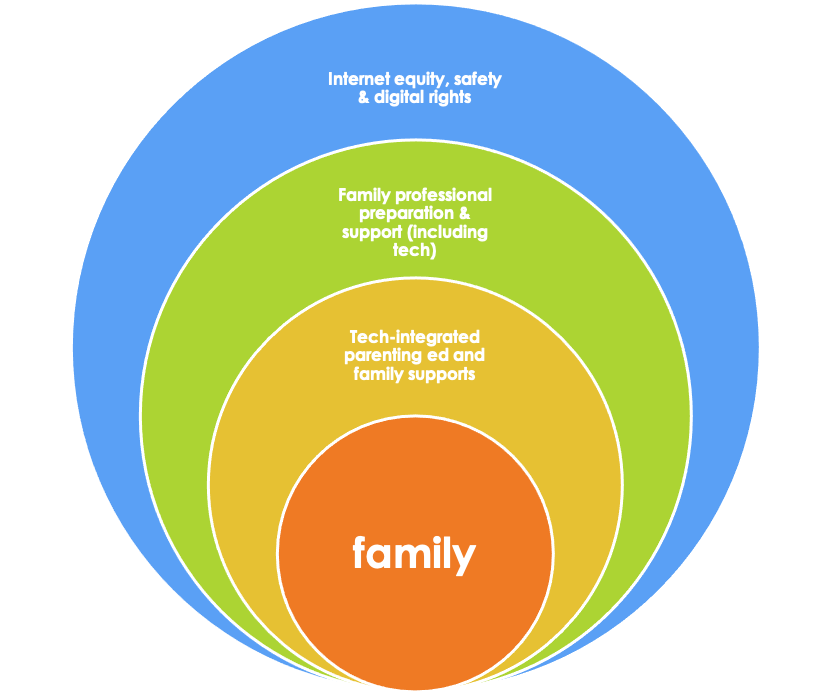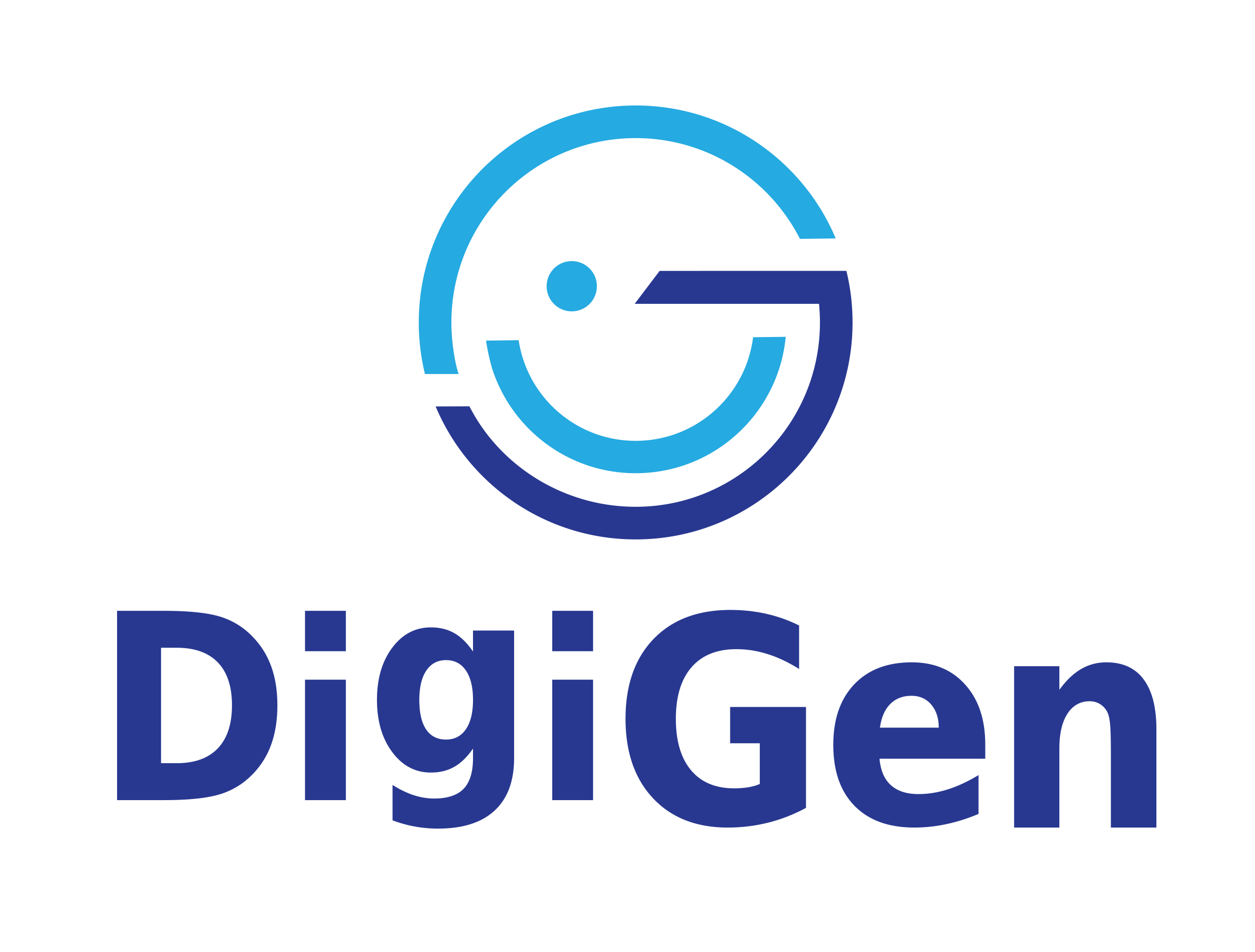By Dr. Susan Walker, Associate Professor of Family Social Science at the University of Minnesota (skwalker@umn.edu)
I was honored to prepare a background report on Families and New Technologies, with a focus on parenting education and work-family balance for the United Nations International Day of Families May 15, 2021 [1]. The report presents current research and practice on the topics and offers policy suggestions to foster a progressive infrastructure of support to families. The policies align with the UN’s Sustainable Development Goals. Below are major points from the report.
Changes brought about by digital technologies
Without a doubt, the introduction of the internet, mobile devices, smart technologies and cloud computing has revolutionized family life in the last 30 years. Looking ahead, experts foresee continued value in efficiency, flexibility and innovation, yet warn that our dependence on convenience will also expose us further to privacy and security threats. During COVID-19, families gained particular appreciation for the ability to work from home, ‘attend’ school, maintain essential relationship connections and manage tasks of daily life. Yet reports of prevalent use of the internet and smart phones mask access differences by countries. Though economically developed countries have nearly 100% use, those in Africa and India especially report rates as low as 13%. As Ayllón et al have identified for DigiGen, material disparities in households with school age children can threaten their ability to participate in school. Until access is addressed disparities in income, education and mobility will only widen. The background report underscores the UN’s efforts to regard internet access, and a safe internet for all, as basic human rights.
Work and family balance
While COVID-19 saw greater independence in when and where work gets done, it also exposed major challenges to boundary management, traditionally maintained through time and place. Though families report a strong preference for flexibility distractions and spillover sometimes caused by increased expectations from employers can bring out new stresses. The background report examines the research on technology use impacts on work-family balance, revealing that it is still very much in an ‘it depends’ scenario. Authors such as Olson-Buchanan, et al cite clusters of variables studied, including antecedants (or influences on use), moderators between use effects (such as workplace culture), and the levels of impacts on the individual/family and/or workplace. The existing lack of representation in work-family research further challenges widespread understanding of technology’s role. Meanwhile employers are strongly advised to continue structural helps to families e.g., leave policies, child care assistance. To embrace ‘new ways of working’ may be to help workers create individualized plans for boundary management or acquire what Ollier-Mallatere et al (2019) call ‘digital cultural capital.’
Technology Use and Children’s Well-being
Our universal concern for children is how use impacts development and the acquisition of life skills. Though research here too is in flux, it is clear that technology use effects physical, emotional, social and cognitive domains of development, starting from infancy onward. Impacts of use and exposure to threat, or its potential displacement of other activity has led to global recommendations by age group on screen time limitations. Guidance to parents echoes other aspects of childrearing – mediating and monitoring use, based on developmental ability, in ways that keep children safe yet encourage independence. Parents and teachers are also encouraged to embrace and participate in the myriad opportunities for children’s learning through new technologies. The ‘connected learning’ paradigm appreciates the ability to deepen knowledge when interests are explored across the social ecology.
Parenting education as a family investment strategy in support of digital futures
The report strongly advocates that we regard parenting education as a key component in our societal ‘investment portfolio’ for families that includes resources for the family and for children. Parenting education in its many forms can build on strengths and facilitate childrearing abilities and confidence; abilities which cannot and should not be assumed. In doing so, the relationship between parent and child through which parents’ lifelong guidance is transmitted is strengthened, and indirectly children’s outcomes are impacted. The report provides extensive information about the research on parenting education modalities and effectiveness. Examples of non-US programs and a range of long and short term outcomes addressed by parenting education are provided as Appendices.
Mobilizing parenting education is both an efficient and effective strategy of support to families on technology use. When embedded as an ongoing topic in parenting education, the use of technology can be woven across childhood rather than as a ‘one off’ topic at a single point of time. And as with other forms of education, integrating social media, text messaging, video conferencing and other digital method will more efficiently meet the learning interests of a new generation of parents. Yet to deploy parenting education as a technology assistance strategy means shoring up with parenting educator workforce with the resources, training and workplace settings conducive to innovation. The highly decentralized, fragmented nature of parenting education worldwide has meant a lack of shared standards for training and performance. In turn this has meant a disparate knowledge base (the majority of professionals citing that they learn about technology ‘on their own’) and weakly resourced in technology devices or training.
Looking forward, preparing families for the future will mean to equip them with the knowledge and skills for safe and effective technology use. To prepare the future for families will mean that access to an internet and to spaces online that are safe, private, and secure is regarded as a human right.
The graphic presented here depicts a ‘policy ecology’ with the family at its centre that encourages infrastructure supports at multiple levels in their lives

[1] The observance of the International Day of Families, taking place on May 15, focused on the impacts of new technologies on the well-being of families. The international day of families was celebrated online on Friday May 14. For more information and to watch the recording of the event, visit the UN DESA website here.

